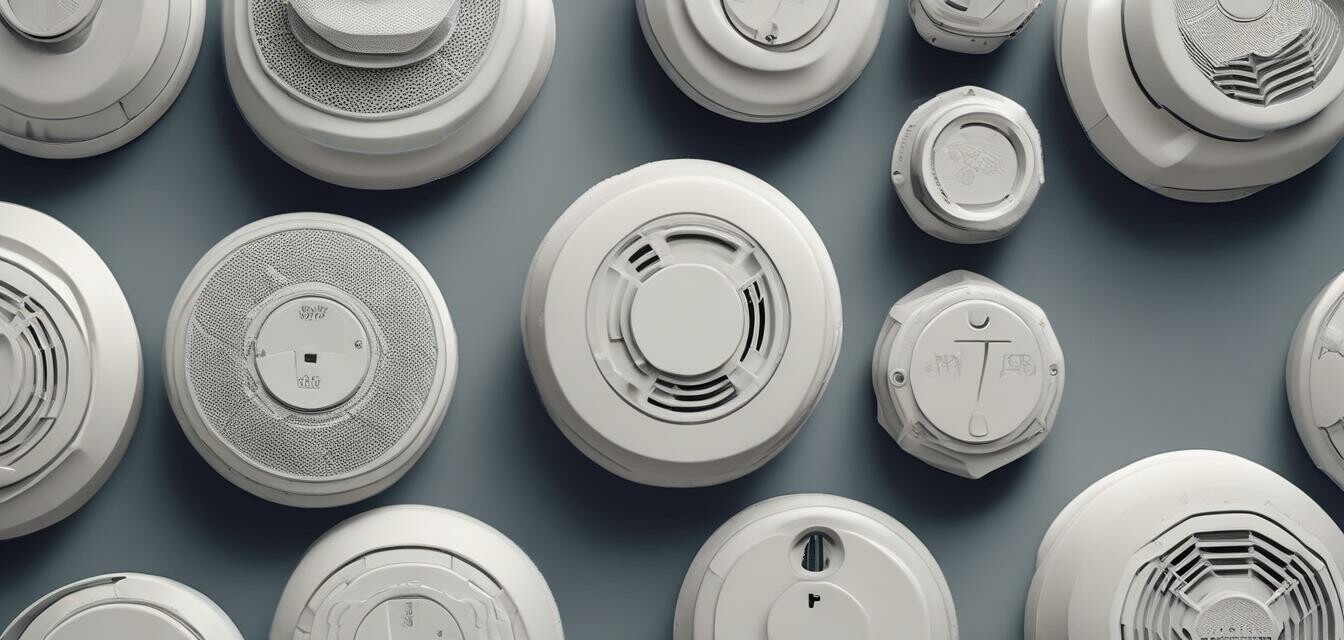
Understanding the Different Types of Smoke Detectors
Key Takeaways
- Smoke detectors can be categorized into several types, each serving different needs.
- Photoelectric smoke alarms are ideal for detecting smoldering fires.
- Ionic smoke alarms are quicker in detecting flaming fires.
- Wireless interconnected smoke alarms provide enhanced safety coverage.
- Regular maintenance and testing of smoke alarms are crucial for optimal functionality.
Smoke detectors are essential safety devices in any home or business. Understanding the different types available can significantly enhance fire safety measures. This guide explores various smoke detector types, their features, and their ideal use cases, helping electricians and homeowners choose the right model for their needs.
Types of Smoke Detectors
Smoke detectors fall into several categories based on their detection methods, such as:
- Ionization smoke detectors
- Photoelectric smoke detectors
- Combination smoke detectors
- Wireless interconnected smoke alarms
- Heat detectors
1. Ionization Smoke Detectors
Ionization smoke detectors use radioactive material to ionize air in a sensing chamber. They are especially sensitive to flaming fires and quickly detect fast-burning fires. However, they may be less effective at detecting smoldering fires.
2. Photoelectric Smoke Detectors
Photoelectric smoke detectors use a light source and a photoelectric sensor to detect smoke. They're particularly effective for smoldering fires. They tend to reduce false alarms caused by cooking or steam.
3. Combination Smoke Detectors
These detectors incorporate both ionization and photoelectric technologies, making them versatile for detecting different types of fires. Offering dual protection, they can alert you to both flaming and smoldering fires.
4. Wireless Interconnected Smoke Alarms
Wireless interconnected smoke alarms enhance safety as they communicate with one another. When one alarm is triggered, all interconnected alarms sound. This ensures comprehensive coverage throughout the home.
LEVSUPTY 1 Pack Wireless Interconnected Photoelectric Smoke Alarm
Features a 10-year lithium battery, ensuring constant safety compliance and a reliable alarm system in your home.
Learn More5. Heat Detectors
Heat detectors are ideal for places where smoke alarms may not be suitable, such as kitchens. They respond to high temperatures, making them less prone to false alarms from cooking smoke.
Factors to Consider When Choosing a Smoke Detector
Selecting the right smoke detector involves a few essential considerations:
- Type of Detection: Determine if you need ionization, photoelectric, or a combination based on your environment.
- Power Source: Choose between battery-powered devices or hardwired models.
- Interconnected Alarms: Consider a system that links alarms for enhanced safety.
- Maintenance Requirements: Opt for models with longer battery life or easy maintenance features.
Product Comparison
| Smoke Detector Type | Best for | Key Feature |
|---|---|---|
| Ionization | Fast-burning fires | Quick response |
| Photoelectric | Smoldering fires | Reduced false alarms |
| Combination | Overall protection | Dual technology |
| Wireless Interconnected | Multi-room coverage | All alarms sound together |
| Heat Detector | Kitchens | High temperature response |
Maintenance Tips for Smoke Detectors
Regular maintenance ensures your smoke detectors function effectively. Here are some tips:
- Test alarms monthly by pressing the test button.
- Replace batteries at least once a year or when the alarm chirps.
- Clean alarms every 6 months to remove dust and debris.
- Replace smoke alarms every 10 years for optimal safety.
Final Thoughts
Choosing the right smoke detector is essential for maintaining safety within your home or workplace. Understanding the strengths and weaknesses of various models will enable you to make informed choices that best suit your needs. For more information, check out our guide on smoke detectors and ensure your safety is always a priority.
Beginners Section
If you're new to smoke detectors, here are some crucial pointers to get started:
- Familiarize yourself with the types of smoke detectors.
- Conduct research to understand your environment's needs.
- Consult with a professional if you're unsure about installation.
- Regularly review your smoke detection strategy to adapt to changes in your surroundings.
